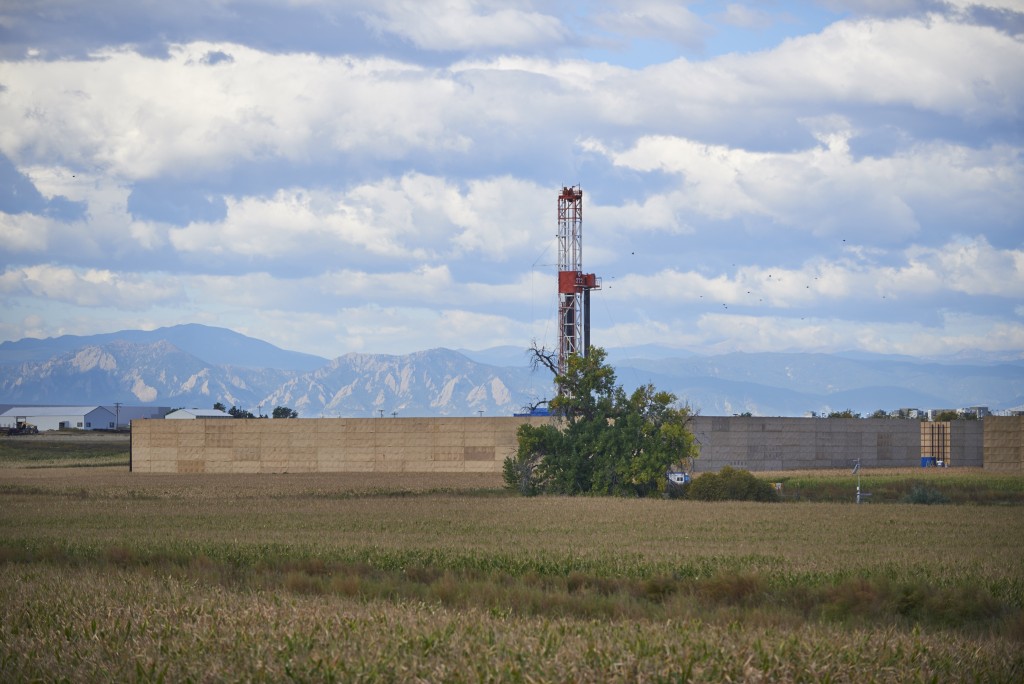Decision could have wide reaching implications for Colorado oil and gas operations
The Colorado Supreme Court announced this week that it will hear cases that will decide the debate on local control on hydraulic fracturing in state. The court agreed to decide whether cities can ban fracing within city-limits, something the oil and gas industry has long challenged, arguing it is a more uniform, streamlined method for the state to remain the single deciding rule-setter.
The court will hear cases from Longmont, where voters banned hydraulic fracturing in 2012, and Fort Collins, where voters approved a five-year moratorium in 2013, reports the Durango Herald.
The Colorado Oil and Gas Association (COGA) sued both cities, and the lower courts overturned the local restrictions, saying regulation is the state’s prerogative. The cities and several environmental groups appealed. The Colorado Court of Appeals decided the potential implications for the state were powerful enough that it would be more appropriate for the state Supreme Court to handle the matter.
Both sides of the debate were happy to hear that their case would go before the state’s highest court.
“People voted to ban fracing within city limits based upon the constitutional right of clean water, clean air and the health of our citizens,” said Joan Peck, a Longmont City Council candidate who co-lead the 2012 petition effort to get the fracing ban on the ballot. “This is a constitutional issue and so I think that’s where it belongs – in the (Colorado) Supreme Court.”
“We look forward to once again having the (Colorado) Supreme Court put further clarification that the ban implement in Longmont and that the Fort Collin’s moratorium are preempted by current law and are thus illegal,” said Doug Flanders, director of policy and external affairs for COGA. “Just like before, we will continue to do the difficult and unsexy work of finding reasonable and workable solutions with our friends and neighbors throughout the state.”
Aurora approves new oil and gas committee
Earlier this week, Aurora Colorado’s City Council voted 8-to-2 in favor of forming a formal oil and gas committee to advise on development in the city. Aurora has not banned fracing, but it has expressed an interest in having more of a say in future development, reports the Aurora Sentinel.
The ordinance establishes a special group of residents, industry officials and other stakeholders to consider issues of oil and gas development, and advise the city council. The committee will include five residents appointed by city council, of which two will come from “the areas most affected by oil and gas” drilling in Aurora, three industry representatives, and three surface owners in Aurora who hold mineral rights.
Erie, Colorado, approves nine Encana wells
While the debate over local control heats up throughout the state of Colorado, the city of Erie has decided to approve a nine-well development plan put forward by Encana (ticker: ECA). Drilling is expected to start by the end of the year, and be completed within about four months, reports Colorado Hometown Weekly.
The ECA wells are the first approved under new regulations for the Weld County town, which were approved earlier this month. The new code creates two types of review processes for companies looking to drill near Erie; one with stricter rules, but a faster permitting process, and a second that requires companies to meet state standards, but with a more arduous review process.
As part of the operator agreement reached with Encana, the company agreed to hold neighborhood meetings prior to submitting state permits, observe noise regulations five decibels lower than state regulations and setbacks more than 1,000 feet from homes for eight pad sites in the agreement area, as well as perform leak inspections exceeding state requirements.
Local bans losing legal battles in other states
In Denton, Texas, the city council repealed its ban on fracing after seven months of legal battles with the state, beating a “strategic” retreat, according to the Denton City Council. The city council decided 6-1 to remove the ban after Texas House Bill 40 made it unenforceable.
The issue of local control also came to into the legal-limelight in Ohio this month, where the state’s highest court decided to keep local control off of the ballot in Fulton, Median and Athens counties, reports Marcellus News. In a 6-1 decision, the Ohio Supreme Court ruled that citizens groups could not force the issues of blocking the path of a gas pipeline across northern Ohio and more heavily regulating fracing operation onto the ballot.
Ohio Secretary of State Jon Husted initially prevented the groups from adding the issues to the ballot, saying that the ballot questions were faulty because they did not create an alternative form of charter county government as they purported to do. While the Ohio Supreme Court agreed with Husted’s conclusion, it warned strongly against the Secretary of State using his authority to decide the legality of such an issue.
In its ruling the court wrote, “An unconstitutional proposal may still be a proper item for referendum or initiative. If passed, the measure becomes void and unenforceable only when declared unconstitutional by a court of competent jurisdiction. Until then, the people’s power of referendum remains paramount.”


